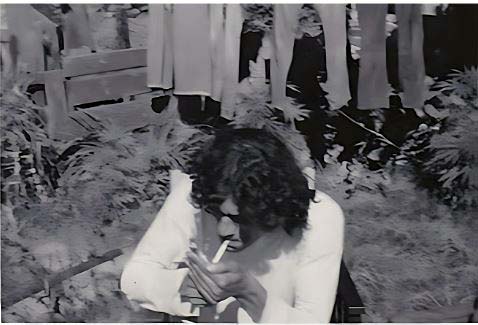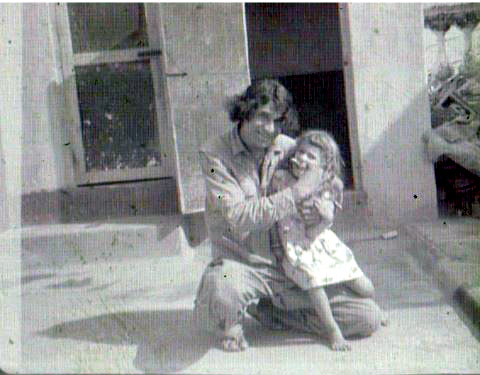Ikram Ahsan in his teenage was known to be a prankster among his large number of friends in his Mallepally neighborhood of Hyderabad. One day, he led a team of four to stage a ritual funeral march through the streets.
The custom was to say the prayers for a dead person at a mosque while the deceased lay on a stretcher (a “dola”) all wrapped up in white. After the prayers, friends or relatives would carry the dola with its load to a cemetery while reciting a prayer. Passersby carry the stretcher on their shoulder for a few minutes and hand over to somebody else walking alongside in the procession, no matter how small. Ikram’s friends carried the dola for a few minutes before slipping away one by one. One of the four strangers carrying their load asked, where are we going? They argued which way was the nearest cemetery. Ikram would speak up, “Now, do you expect me to tell you where”? They dropped him and ran off.

Who was Ikram Ahsan? The quickest answer: He was Shabana Azmi’s cousin, Tabbu’s uncle, the second son of Mumtaz Begum and M. Ahsan, immigrants from Bulandshahr in U.P. Mrs. Ahsan was Ikram’s and my own primary school teacher at Hyderguda. Ahsan saab was the math professor at Osmania University. (My father was a history prof.)
Another first-hand story comes to mind. Ikram told friends about the day he went into the woods, got lost and had an encounter with a ghost. The friends were gathered around him on this dark winter night along the university road where large bats hung upside down from jamun tree branches. He said he came upon a hut in the wilderness with a small light. He approached the hut and observed through a window an old woman with fangs and long, white hair stirring a big pot on a fire. She noticed him at the window and threw an iron ball at him. “Look, it hit me here,” Ikram would say and bend to show his head wound, when instantaneously he’d lunge at the nearest body with a loud scream!
Cheap thrills! Sure.
Ikram used to say that his father was the only person in the city who understood Einstein’s general theory of relativity, and he explained it to him. Same for the nuclear bomb and nuclear energy. A heavy smoker of cheap and strong Charminar cigarettes, Ahsan saab could be seen pacing up and down in the neighborhood near the bus stop on the OU road, a cigarette in his fingers.
Mrs. Ahsan was one of four sisters: One was popularly known as Baji; she was among the organizers of the first Progressive Writers Movement’s conference in Hyderabad in 1937. She was the host-friend of writers Ismat Chughtai, Krishen Chander and a few other stars. Baji later ran a women’s employment program and was a model for women’s rights. She was responding to social reformer, Independence leader Kamaladevi Chattopadhyay’s call for women to organize and agitate for their rights.
A second sister was Shabana Azmi’s mother, Shaukat Khanum. A third was the wife of journalist and lecturer Akhtar Hasan. The fourth was an OU Women’s College Persian lecturer.
Fast forward a few more years.
